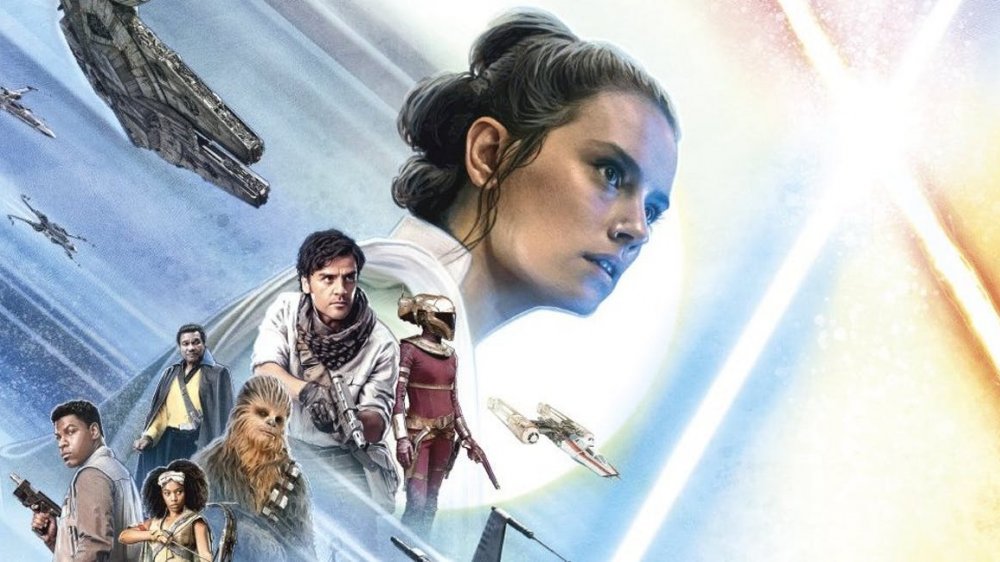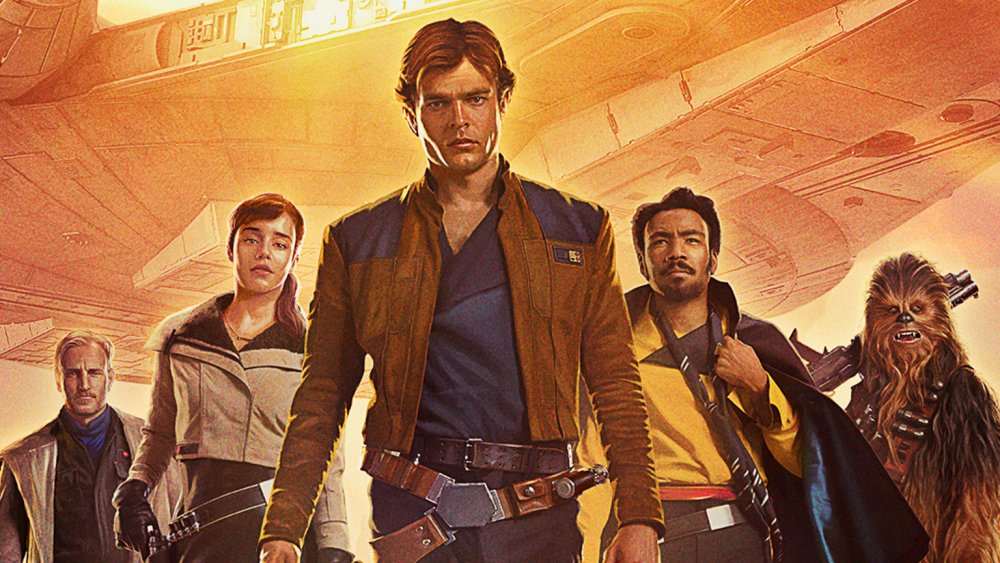Why 'Less Is More' For The Star Wars Franchise
Star Wars is a franchise that has stood the test of time, but that doesn't mean it hasn't had its rough patches and moments of questionable choices. It's inevitable with any media property that's been around for forty years, and it's a testament to how much the public loves Star Wars that so many are willing to still appreciate it and look past its faults.
We can look back now and debate just how much of the prequel trilogy was made up of mistakes, but it's fair to say that the stewards of Star Wars are making mistakes even now, even with the deep-pocketed Disney (which acquired Lucasfilm in 2012) doing its best to keep the franchise relevant and lucrative. The entertainment megalith's efforts are far from failure — Star Wars: Episode VII: The Force Awakens and Star Wars: Episode VIII: The Last Jedi together made almost $4 billion for ol' Mickey to laugh all the way to the bank with. They weren't, however, the universally-loved gems that Disney CEO Bob Iger had hoped for.
Iger recently clarified some statements that he'd previously made suggesting that Disney had been too aggressive with its Star Wars output. "I have not said they were disappointing in any way. I have not said I have been disappointed in performance," Iger told Variety. "I just think there's something so special about Star Wars films, and that less is more."
This is, of course, is what we have officially termed an executive-level diplomatic non-statement. Any CEO would and should be disappointed, for instance, with Solo: A Star Wars Story's box office numbers and middling reviews given that the film contains the words Star Wars in its title. But his closing point is salient, and proves that the Mouse House has learned an important lesson in regard to the property: less is more.
Franchise fatigue is real
Love it or hate it, this is the era of cornerstone IP franchises in cinema, and for now, it is here to stay. Like an anchor department store attached to a dying mall, the movie theater industry needs these guaranteed returns on investment to keep itself afloat. But the risk attached to that necessity is obvious, and has already been underlined: franchise fatigue. It doesn't matter how good any individual offering may be — if you're throwing content out on too fast a schedule, people will tire of seeing it all the time. Hype, it turns out, is not a long-term sustainable resource.
This is one big reason why less really is more when it comes to Star Wars. When the original film was released in 1977, no one (least of all George Lucas) knew what it would become, but the fact is that the releases of Star Wars movies have always been major cultural events. Things like animated series and (hopefully) the coming live-action miniseries on Disney+ keep the brand relevant and present in people's minds, but the entertainment world stops for a new Star Wars movie.
Event movies require hype, that previously-established unsustainable resource, and that requires time to recharge. People need to miss something to feel unrestrained excitement to see it again, so it's wise going forward for Disney to let that dough rest and foment for a prudent amount of time between cinematic releases, and let the small-screen offerings bridge the gap.
It should be pointed out that the Marvel Cinematic Universe is a slightly different case, because those movies have from their inception been presented as truly episodic installments attached to a universe with many narrative threads. Insofar as the film series, Star Wars has always revolved around the Skywalkers and their specific story (for now). The pacing and narrative priorities of the two franchises are very different, so Disney can more than afford to let the MCU machine rake in the bucks every few months, and let Star Wars remain the heavy hitter event of every few years. (Everybody knows you own both properties, guys; don't make the money grab too textual.)
Take your time, do it right
Another positive aspect of the less-is-more philosophy: it gives filmmakers time to sufficiently develop their ideas. With a property like Star Wars, which is pretty much culturally timeless and thus can be reintroduced in any given decade and be greeted warmly, there's no need to rush out new content as if it were a brief fad to be capitalized on. This weaves back into the point about franchise fatigue — treating the IP like a piggy bank to be raided with regularity will mean diminishing returns in terms of quality, and the audience will quickly lose interest.
Given the legacy and cultural reach of the original trilogy, Star Wars fans and critics alike simply expect quality from the franchise. Star Wars is a crown jewel of American media culture, with a truly massive fanbase; those fans would generally prefer that Star Wars not be turned into a golden goose for the sake of someone's quarterly revenue report.
If there was one specific point at which the House of Mouse may have learned this lesson, it was probably with the relative failure of the aforementioned Solo: A Star Wars Story. The film suffered a lot of behind-the-scenes drama (including the mid-production exit of original directors Phil Lord and Chris Miller), hasty reshoots during production, and was met with less-than-stellar reviews after release. Disney was able to dump money they knew they weren't going to get back on reshoots after Lord and Miller departed, and it's generally agreed that replacement director Ron Howard saved the film from being a total disaster. But with an apparent mandate from on high to stick to the flick's previously-announced release date, only so much of the damage could be contained — and the result was a less-than-satisfying movie, and the lowest-grossing entry of the entire franchise.
It turned out to be a painful lesson, but one well-learned. In April 2019, Iger announced that Disney would ease off the gas on future Star Wars release timelines. We can see that more materially now with the rather abrupt departure of David Benioff and D.B. Weiss from the franchise, with a planned trilogy to be masterminded by the former Game of Thrones showrunners apparently scrapped (although this likely had more to do with the perceived inability of the duo, who recently inked a massive overall deal with Netflix, to juggle multiple projects than anything else).
It all points back, though, to an emphasis on quality over quantity. Nobody is quite sure at this point what the future of the galaxy far, far away will look like, but two things are certain: Star Wars fans will always be there with open arms, so Disney's new tack should be encouraged, because it'll result in best possible end product for a fan base that, frankly, deserves that.
Second: the Force will be with you. Always.


